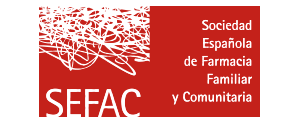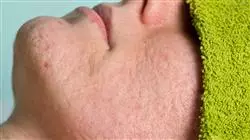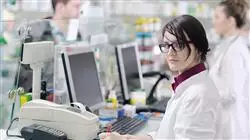University certificate
Scientific endorser

The world's largest faculty of pharmacy”
Introduction to the Program
This training will generate a sense of confidence in the performance of clinical practice, which will help you grow personally and professionally”

Improve your knowledge in Dermatological Pharmaceutical Care in Community Pharmacies through this program, where you will find the best didactic material with real clinical cases. Learn here about the latest advances in the specialty to be able to perform a quality practice”
On many occasions, when patients are faced with dermatological problems, they often go first to the pharmacy for advice before turning to their family physician or directly to a dermatologist.
The training received by the pharmacist on dermatology in the pharmacy degree is limited for subsequent practice in community pharmacies, so it is necessary to complement this training with more focused training in pharmacotherapy and all those products that are used as adjuvants in the prevention and treatment of dermatological pathologies and that are marketed under different types of registrations: cosmetics, nutritional supplements and medical devices.
The community pharmacist, the health professional closest to the population, plays a fundamental role in the approach and prevention of minor skin problems of frequent occurrence.
The need for this program is based on the widespread ignorance of dermatological pathologies, to which patients tend to attach less importance than to other ailments, erroneously imbued with the belief that skin care should be limited to photoprotection. This lack of skin care is both a challenge and an opportunity for the community pharmacist.
Therefore, in order to meet this demand for care and to attend the patients with these health problems when necessary and to know when to refer them for care by a physician, it is essential for the community pharmacist to update and complete their knowledge of dermatological pathologies, as well as the equipment that is used.
This Professional master’s degree is made up of several modules developed by a team of community pharmacists belonging to the Spanish Society of Family and Community Pharmacy (SEFAC), national leaders in each subject. These topics include an up-to-date review of the treatment of most of the dermatological pathologies that can reach a community pharmacy, some of them agreed with medical scientific societies.
Update your knowledge through the Online Professional master’s degree in Dermatological Pharmaceutical Care in Community Pharmacies"
This Online Professional master’s degree in Dermatological Pharmaceutical Care in Community Pharmacies contains the most complete and up-to-date scientific program on the market. The most important features of the program include:
- Development of more than 50 clinical cases presented by experts in Dermatological Pharmaceutical Care in Community Pharmacies. The graphic, schematic, and eminently practical contents with which they are created provide scientific and practical information on the disciplines that are essential for professional practice
- It contains practical exercises where the self-evaluation process can be carried out to improve learning
- Algorithm-based interactive learning system for decision-making in the presented clinical situations
- With special emphasis on evidence-based medicine and research methodologies in Dermatological Pharmaceutical Care in Community Pharmacies
- All of this will be complemented by theoretical lessons, questions to the expert, debate forums on controversial topics, and individual reflection assignments
- Content that is accessible from any fixed or portable device with an Internet connection
This Professional master’s degree may be the best investment you can make in selecting a refresher program for two reasons: in addition to updating your knowledge of Dermatological Pharmaceutical Care in Community Pharmacies, you will obtain a Professional master’s degree Certificate from TECH Global University”
Its teaching staff includes professionals belonging to the field of Dermatological Pharmaceutical Care in Community Pharmacies who contribute their work experience to this training, as well as recognized specialists belonging to leading scientific societies.
The multimedia content developed with the latest educational technology will provide the professional with situated and contextual learning, i.e., a simulated environment that will provide immersive training program to train in real situations.
The design of this program is based on Problem-Based Learning, by means of which the health professional must try to solve the different professional practice situations that arise throughout the course. To this end, the professional will be assisted by an innovative interactive video system created by recognized experts in the field of community pharmacies.
Increase your decision-making confidence by updating your knowledge through this Professional master’s degree”

Take the opportunity to learn about the latest advances in Dermatological Pharmaceutical Care in Community Pharmacies and improve your customer care”
Why study at TECH?
TECH is the world’s largest online university. With an impressive catalog of more than 14,000 university programs available in 11 languages, it is positioned as a leader in employability, with a 99% job placement rate. In addition, it relies on an enormous faculty of more than 6,000 professors of the highest international renown.

Study at the world's largest online university and guarantee your professional success. The future starts at TECH”
The world’s best online university according to FORBES
The prestigious Forbes magazine, specialized in business and finance, has highlighted TECH as “the world's best online university” This is what they have recently stated in an article in their digital edition in which they echo the success story of this institution, “thanks to the academic offer it provides, the selection of its teaching staff, and an innovative learning method aimed at educating the professionals of the future”
A revolutionary study method, a cutting-edge faculty and a practical focus: the key to TECH's success.
The most complete study plans on the university scene
TECH offers the most complete study plans on the university scene, with syllabuses that cover fundamental concepts and, at the same time, the main scientific advances in their specific scientific areas. In addition, these programs are continuously being updated to guarantee students the academic vanguard and the most in-demand professional skills. In this way, the university's qualifications provide its graduates with a significant advantage to propel their careers to success.
TECH offers the most comprehensive and intensive study plans on the current university scene.
A world-class teaching staff
TECH's teaching staff is made up of more than 6,000 professors with the highest international recognition. Professors, researchers and top executives of multinational companies, including Isaiah Covington, performance coach of the Boston Celtics; Magda Romanska, principal investigator at Harvard MetaLAB; Ignacio Wistumba, chairman of the department of translational molecular pathology at MD Anderson Cancer Center; and D.W. Pine, creative director of TIME magazine, among others.
Internationally renowned experts, specialized in different branches of Health, Technology, Communication and Business, form part of the TECH faculty.
A unique learning method
TECH is the first university to use Relearning in all its programs. It is the best online learning methodology, accredited with international teaching quality certifications, provided by prestigious educational agencies. In addition, this disruptive educational model is complemented with the “Case Method”, thereby setting up a unique online teaching strategy. Innovative teaching resources are also implemented, including detailed videos, infographics and interactive summaries.
TECH combines Relearning and the Case Method in all its university programs to guarantee excellent theoretical and practical learning, studying whenever and wherever you want.
The world's largest online university
TECH is the world’s largest online university. We are the largest educational institution, with the best and widest online educational catalog, one hundred percent online and covering the vast majority of areas of knowledge. We offer a large selection of our own degrees and accredited online undergraduate and postgraduate degrees. In total, more than 14,000 university degrees, in eleven different languages, make us the largest educational largest in the world.
TECH has the world's most extensive catalog of academic and official programs, available in more than 11 languages.
Google Premier Partner
The American technology giant has awarded TECH the Google Google Premier Partner badge. This award, which is only available to 3% of the world's companies, highlights the efficient, flexible and tailored experience that this university provides to students. The recognition as a Google Premier Partner not only accredits the maximum rigor, performance and investment in TECH's digital infrastructures, but also places this university as one of the world's leading technology companies.
Google has positioned TECH in the top 3% of the world's most important technology companies by awarding it its Google Premier Partner badge.
The official online university of the NBA
TECH is the official online university of the NBA. Thanks to our agreement with the biggest league in basketball, we offer our students exclusive university programs, as well as a wide variety of educational resources focused on the business of the league and other areas of the sports industry. Each program is made up of a uniquely designed syllabus and features exceptional guest hosts: professionals with a distinguished sports background who will offer their expertise on the most relevant topics.
TECH has been selected by the NBA, the world's top basketball league, as its official online university.
The top-rated university by its students
Students have positioned TECH as the world's top-rated university on the main review websites, with a highest rating of 4.9 out of 5, obtained from more than 1,000 reviews. These results consolidate TECH as the benchmark university institution at an international level, reflecting the excellence and positive impact of its educational model.” reflecting the excellence and positive impact of its educational model.”
TECH is the world’s top-rated university by its students.
Leaders in employability
TECH has managed to become the leading university in employability. 99% of its students obtain jobs in the academic field they have studied, within one year of completing any of the university's programs. A similar number achieve immediate career enhancement. All this thanks to a study methodology that bases its effectiveness on the acquisition of practical skills, which are absolutely necessary for professional development.
99% of TECH graduates find a job within a year of completing their studies.
Professional Master's Degree in Dermatological Pharmaceutical Care in Community Pharmacies
Generally when a case of heatstroke or rash occurs, the initial reaction of the affected person and/or those accompanying them is not to go immediately to a medical center or clinic (unless it is a serious incidence), but to seek advice at the nearest pharmacy. This tendency places the pharmacy clerk in the first step of the regular health care service, especially in the case of skin conditions. The Professional Master's Degree in Dermatological Pharmaceutical Care in Community Pharmacies was created as an educational opportunity that seeks precisely to delve into the pharmacological background involved in the treatment of lesions and anomalies related to the cutaneous organ. Through eight modules taught in a completely online environment, we provide access to a highly specialized and useful content that will be favorable to you at the time of guiding the healing of multiple problems, ranging from a simple insect bite to a Merkel carcinoma. Everything you need to give your career a boost can be found at TECH.
Dermatology for pharmacists, an indispensable study
Drug-selling establishments there are many, but how many have experts in the management of psoriasis or lupus erythematosus? Prescribing and dosing for eczema caused by allergy is not the same as prescribing and dosing for eczema caused by fungal infection. That is where the real expertise and integrity of the clerk lies in minimizing the possible risks to the patient's health. The Professional Master's Degree that we offer breaks down each of the various cases that we will find for the treatment of each type of skin, because it is necessary to remember that there are different skin phototypes which will also be covered in the program. All classes are framed within the latest innovations in distance education, in addition to being taught by a teaching team with considerable experience in the pharmaceutical and dermatological field. This means that you have total time flexibility and tutoring with a focus on the labor market. Come study with us and turn your community pharmacy into a benchmark of healthcare professionalism.







